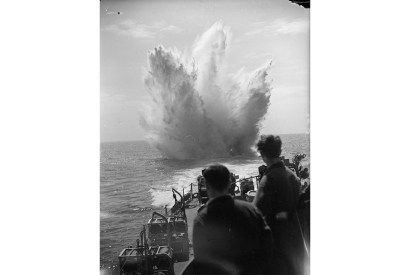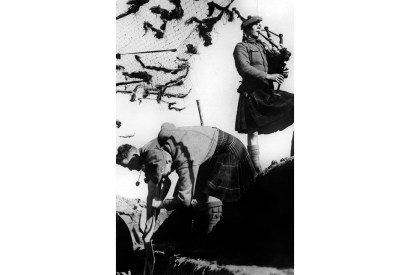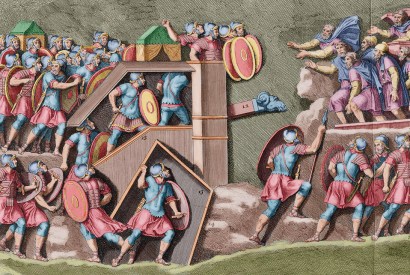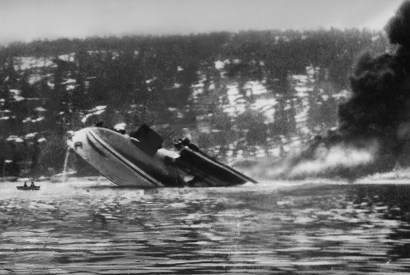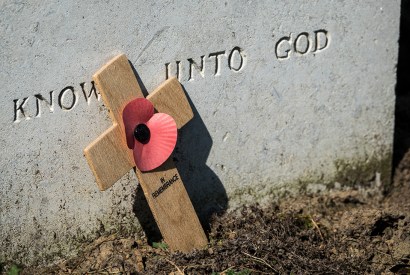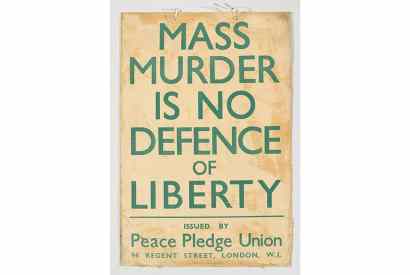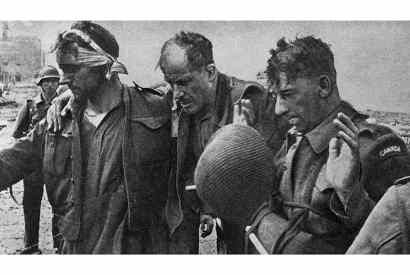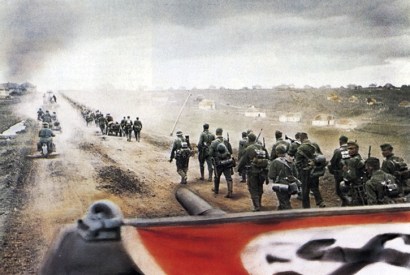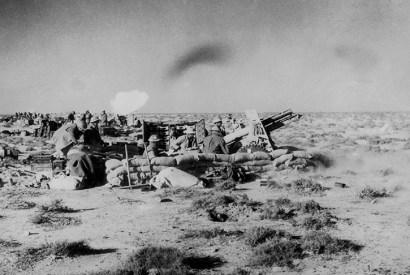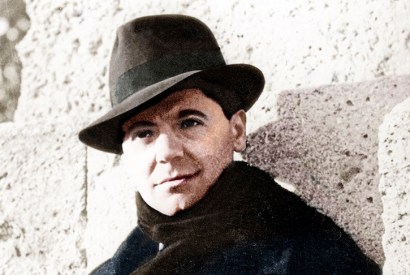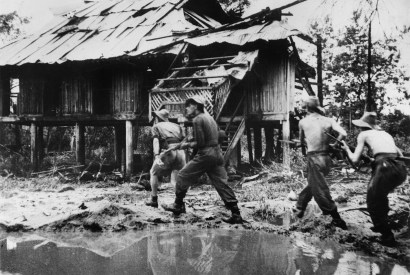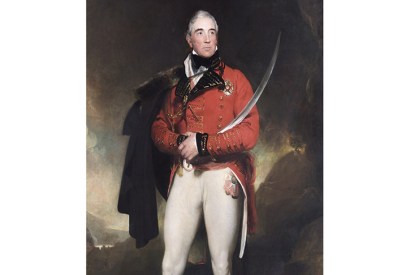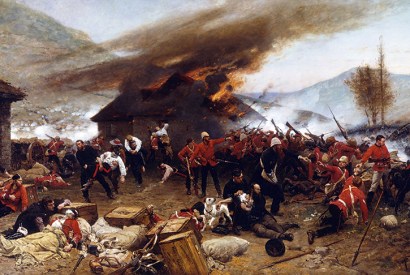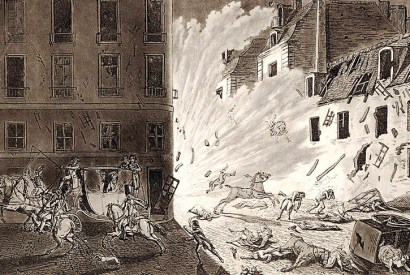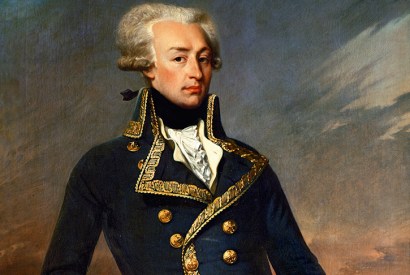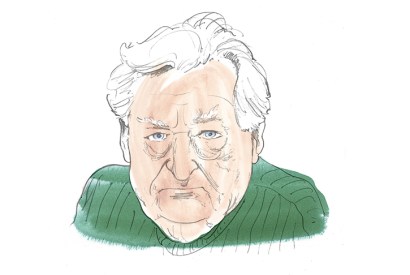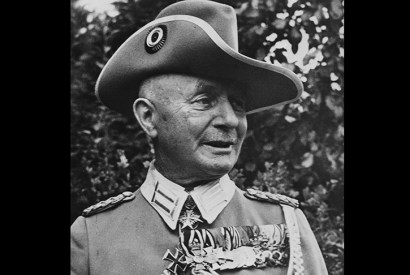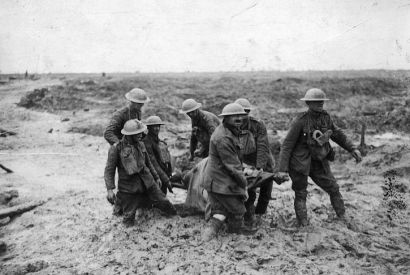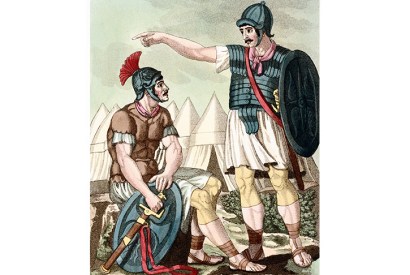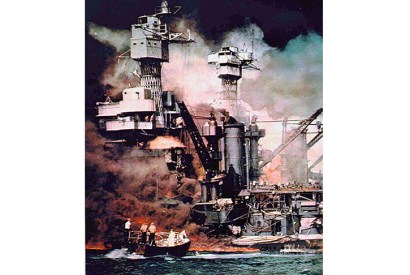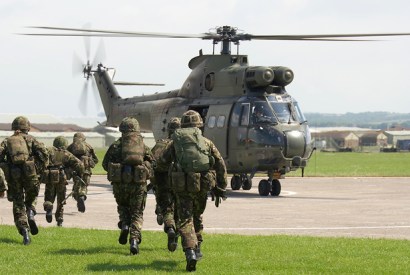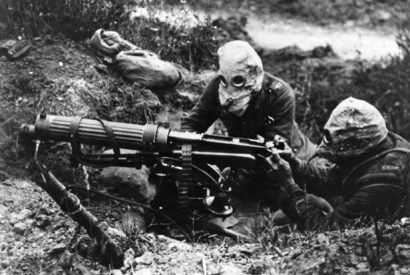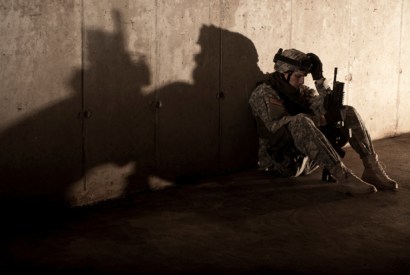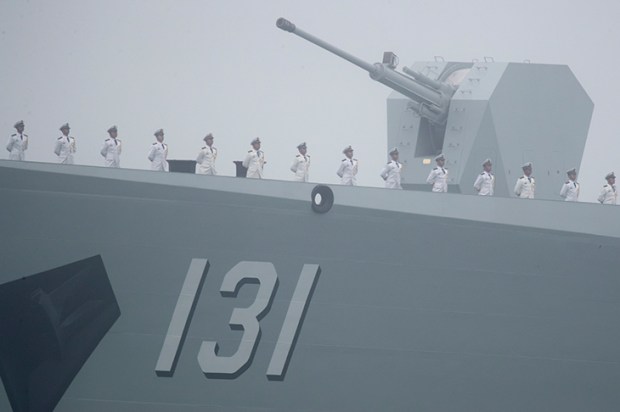The good soldier Maczek – a war hero betrayed
After fighting for the Allies in Hungary, France, Belgium and Holland, Stanislaw Maczek finds himself stripped of his Polish citizenship as a result of the Yalta conference
Eighty years on, the planning of Operation Neptune remains awesome
The seaborne invasion went so smoothly, it might have been thought plain-sailing. But that was far from the truth. Nick Hewitt describes the meticulous forethought that preceded it
Why was the British army so ill-prepared to fight the second world war?
After 1918, the general staff ceased to focus on who they might have to fight next and how, leading to the abysmal performance of the army in Norway and France in 1940
An ancient stalemate may provide lessons today
History is always relevant, says Adrian Goldsworthy – and Rome’s long war with Parthia-Persia, ending in deadlock, should make Putin wary
Did the sinking of the Blücher in 1940 affect the outcome of the war?
The answer is, we shall never know – but one Norwegian colonel’s quick decision may have ensured Churchill’s premiership and the success of Dunkirk
A young soldier’s noble vision: creating the Western Front Way
This profound and emotion-laden book ends, as did the first world war, in hope, and no little catharsis. It begins,…
The pacifists of the 1930s deserve greater understanding
As I’ve occasionally come to think is the case with The Spectator, this book is perhaps best begun at the…
What I really said to Gordon Brown: Field Marshal Lord Guthrie sets the record straight
A headline in the Mail on Sunday, taken up eagerly by the BBC’s Todayprogramme, claimed recently: ‘The SAS is getting…
Can the fiasco of the Dieppe Raid really be excused?
In my mother’s final days we had a long conversation about the second world war. I asked if she’d ever…
Why did Hitler’s imperial dreams take Stalin by surprise?
The most extraordinary thing, still, about Operation Barbarossa is the complete surprise the Wehrmacht achieved. In the early hours of…
Old men remember: reliving the horror of Tobruk
‘Old men forget; yet all shall be forgot,/ But he’ll remember, with advantages,/ What feats he did that day.’ Peter…
Break-out and betrayal in Occupied Europe
Für dich, Tommy, ist der Krieg vorbei. However, many British servicemen, officers especially, didn’t want their war to be over.…
The Far East Campaign of 1941-5 is the new focus of Daniel Todman’s comprehensive history
To begin not at the beginning but at the end of the beginning. Or rather, to begin at another beginning,…
In praise of Thomas Graham, unsung hero of the Peninsular War
Why does a man join the army? The answer was probably more obvious in the 18th century than now, but…
Snatching victory from the jaws of defeat: the triumph of Rorke’s Drift
On 22 January last year, the entrance whiteboard at London Underground’s Dollis Hill carried a brief factual statement: On this…
Why do people risk their lives to fight for a foreign cause?
What’s the point of a cover if not to judge a book by? One look at the image on the…
Field Marshal Lord Bramall on why we should use force for peace
It is always a delight to drive the country roads of Hampshire to see the man known throughout the army…
The German Lion of Africa
What’s going on with book reviews? Here is the Pulitizer prizewinning (for ‘criticism’) Michael Dirda in the Washington Post, on…
A fighting chance
‘We remember it not only for the rain that fell, the mud that weighed down the living and swallowed the…
Who will guard the guards?
The history of an army is essentially the history of its deeds. The history of an army within an army…
Day of infamy
On 7 December 1941, without declaration of war, 350 Japanese carrier-borne aircraft struck at the US Pacific Fleet at anchor…
Soldiers of the Queen
It’s not immediately obvious, but the silhouette on the dust jacket — soldiers advancing in single file, on foot (‘boots…
Ce n’est pas la guerre
On 1 July 1916, along a frontage of 18 miles, 100,000 British infantrymen — considerably more than the entire strength…
Pumped up and dangerous: going to war on drugs
‘Of all civilisation’s occupational categories, that of soldier may be the most conducive to regular drug use.’ The problem with…


